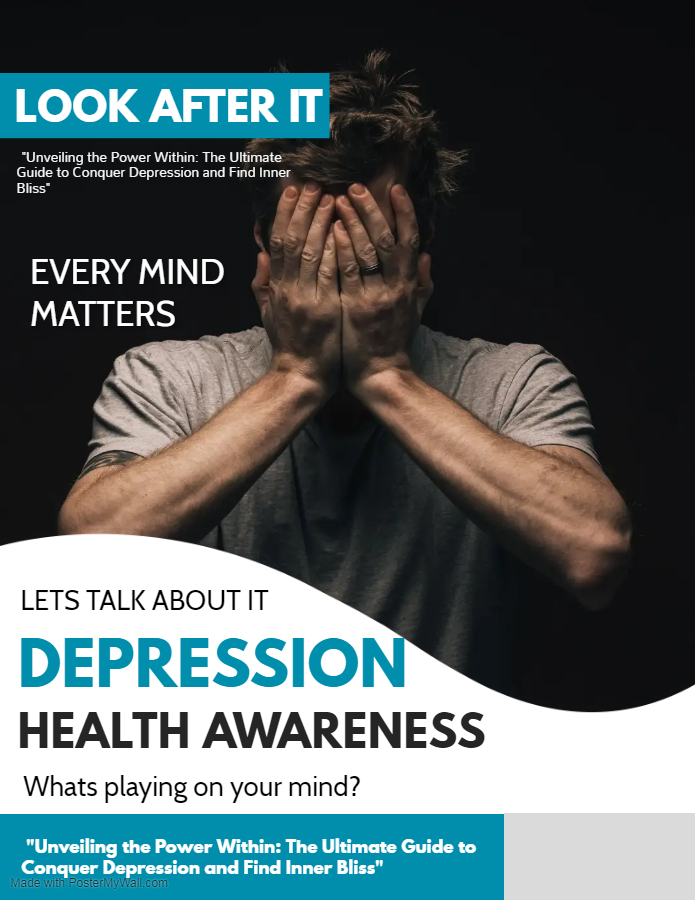Depression, a silent foe that can cast a dark shadow on even the brightest of lives, affects millions of people worldwide. It can be an overwhelming and isolating experience, making it challenging to see a way out of the darkness. However, amidst the struggles, there lies a hidden power within each of us – the power to conquer depression and find inner bliss. In this ultimate guide, we will explore effective strategies, techniques, and insights to help you unleash this power and embark on a journey toward a happier, more fulfilling life.
Understanding Depression
Before diving into the strategies for conquering depression, it’s crucial to understand what depression is and its potential causes. Depression is a complex mental health condition that goes beyond mere sadness. It can manifest in various ways, such as persistent feelings of sadness, hopelessness, loss of interest in activities, changes in appetite and sleep patterns, and difficulty concentrating.
While the exact causes of depression can be diverse and multifaceted, it often involves a combination of genetic, environmental, and psychological factors. Traumatic life events, chronic stress, imbalanced brain chemistry, and a family history of depression are some contributing factors.
Seeking Professional Help
Recognizing and accepting that you are experiencing depression is the first step toward healing. Remember, you don’t have to face this battle alone. Seeking professional help from a mental health expert, such as a therapist or counselor, can be incredibly beneficial. They can provide guidance, support, and evidence-based interventions tailored to your unique needs.
Embracing Mindfulness and Meditation
Mindfulness and meditation practices have gained tremendous popularity in recent years for their ability to cultivate inner peace and mental clarity. These practices encourage being present in the moment, observing thoughts without judgment, and letting go of attachments to negative emotions. Engaging in mindfulness and meditation regularly can rewire your brain and help you develop a more positive outlook on life.
Physical Activity and Exercise
Regular physical activity and exercise are not just beneficial for physical health but also play a vital role in improving mental well-being. Exercise releases endorphins, the body’s natural feel-good chemicals, which can alleviate stress, anxiety, and depression. Whether it’s a brisk walk in nature, a yoga session, or hitting the gym, find an activity that suits your preferences and incorporate it into your daily routine.
Cultivating a Supportive Social Network
Isolation can exacerbate depression, so it’s crucial to cultivate a supportive social network. Surround yourself with people who understand, listen, and offer empathy. Connecting with loved ones, friends, or joining support groups can help you feel understood and less alone in your struggles.
Practice Gratitude and Positive Thinking
Gratitude and positive thinking have the power to shift your focus from the negatives to the positives in life. Keep a gratitude journal, where you jot down things you are thankful for each day. Engage in positive self-talk and challenge negative thought patterns. Over time, these practices can help you develop a more optimistic mindset.
Nurturing Self-Compassion
Be gentle and compassionate with yourself during difficult times. Depression can lead to self-criticism and a sense of worthlessness. Practice self-compassion by treating yourself with the same kindness and understanding you would offer a close friend. Remember that it’s okay to ask for help and take breaks when needed.
Engage in Activities You Love
Depression can often rob us of the joy we once found in our favorite activities. Reconnecting with hobbies, interests, or creative pursuits you once loved can spark a sense of purpose and joy. Engaging in activities you are passionate about can also serve as a healthy outlet for emotions.
Consider Medication and Therapy
In some cases, medication may be prescribed to manage depression. Antidepressant medications can help balance brain chemicals and alleviate symptoms. Additionally, therapy can complement medication by providing valuable coping skills and emotional support.
Conclusion
Conquering depression and finding inner bliss is a journey that requires courage, patience, and self-compassion. By seeking professional help, practicing mindfulness, engaging in physical activity, nurturing a supportive social network, and cultivating positive habits, you can tap into the hidden power within you. Remember that healing is not linear, and setbacks are a natural part of the process. Embrace the journey, and with perseverance, you can reclaim your life and rediscover the joy and fulfillment that lies within you.
Kindly suscribe to my blog for more……………..

